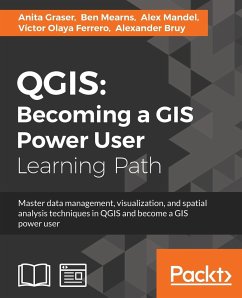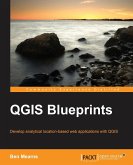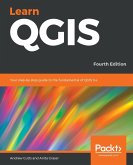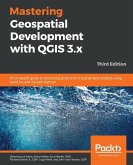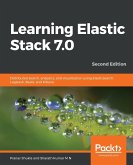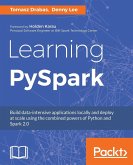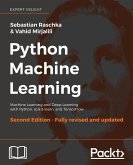Master data management, visualization, and spatial analysis techniques in QGIS and become a GIS power user Key Features:Learn how to work with various types of data and create beautiful maps using this easy-to-follow guide Give a touch of professionalism to your maps, both for functionality and look and feel, with the help of this practical guide This progressive, hands-on guide builds on a geo-spatial data and adds more reactive maps using geometry tools. Book Description: The first module Learning QGIS, Third edition covers the installation and configuration of QGIS. You'll become a master in data creation and editing, and creating great maps. By the end of this module, you'll be able to extend QGIS with Python, getting in-depth with developing custom tools for the Processing Toolbox. The second module QGIS Blueprints gives you an overview of the application types and the technical aspects along with few examples from the digital humanities. After estimating unknown values using interpolation methods and demonstrating visualization and analytical techniques, the module ends by creating an editable and data-rich map for the discovery of community information. The third module QGIS 2 Cookbook covers data input and output with special instructions for trickier formats. Later, we dive into exploring data, data management, and preprocessing steps to cut your data to just the important areas. At the end of this module, you will dive into the methods for analyzing routes and networks, and learn how to take QGIS beyond the out-of-the-box features with plug-ins, customization, and add-on tools. This Learning Path combines some of the best that Packt has to offer in one complete, curated package. It includes content from the following Packt products: ¿ Learning QGIS, Third Edition by Anita Graser ¿ QGIS Blueprints by Ben Mearns ¿ QGIS 2 Cookbook by Alex Mandel, Víctor Olaya Ferrero, Anita Graser, Alexander Bruy What You Will Learn:Create your first map by styling both vector and raster layers from different data sources Use parameters such as precipitation, relative humidity, and temperature to predict the vulnerability of fields and crops to mildew Re-project vector and raster data and see how to convert between different style formats Use a mix of web services to provide a collaborative data system Use raster analysis and a model automation tool to model the physical conditions for hydrological analysis Get the most out of the cartographic tools to in QGIS to reveal the advanced tips and tricks of cartography Who this book is for: If you are a user, developer, or consultant and want to know how to use QGIS to achieve the results you are used to from other types of GIS, then this learning path is for you. You are expected to be comfortable with core GIS concepts. This Learning Path will make you an expert with QGIS by showing you how to develop more complex, layered map applications. It will launch you to the next level of GIS users.

